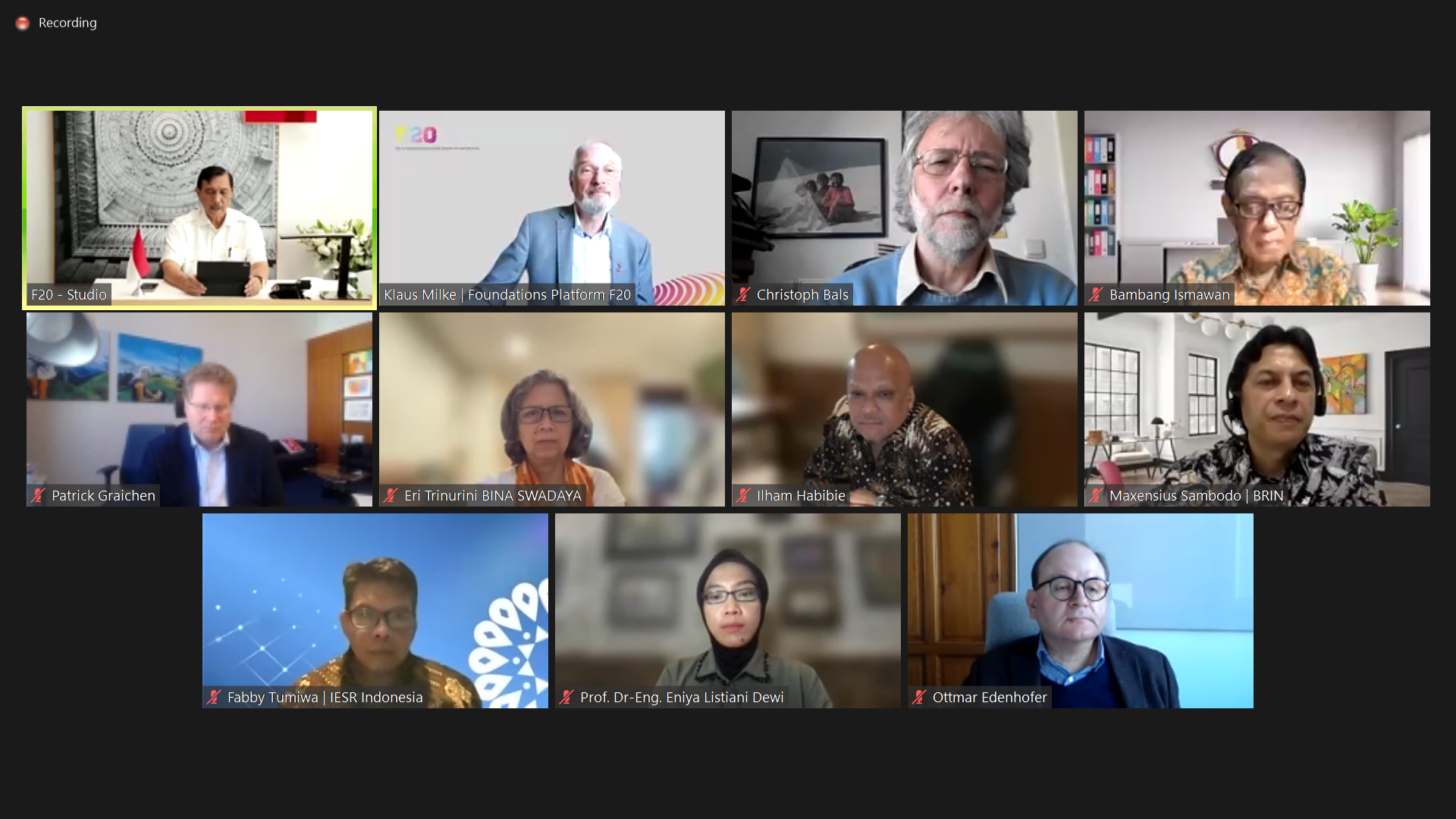Jakarta, 22 March 2022 – Indonesia through its LTS-LCCR (Long Term Strategy Low Carbon Climate Resilience) document states that it will achieve carbon neutral status in 2060 or sooner. The capacity of fossil energy in Indonesia’s energy system, especially electricity, is highlighted because with the aim of becoming carbon neutral, Indonesia must immediately retire most of its coal-fired power plants.
At the A Just Energy Transition: Matching Learning Curves from Germany and Indonesia Symposium held online on March 22, 2022, Ottmar Edenhofer, Director of the Potsdam Institute for Climate Impact Research, explained that in order to achieve the emission reduction target of the Paris Agreement, the Southeast Asia region must reduce coal capacity by 60% within this decade.
“Coal absorbs a large portion of our carbon budget, to maintain our carbon budget reserves, we have to significantly reduce the current coal capacity,” said Ottmar.
Holding the G20 Presidency, Indonesia has made a just energy transition one of its priority issues. Just like Indonesia in the G20-presidency, Germany, which holds the G7 presidency at this time, has also made the energy transition one of the main topics. The similarity of the main agenda of the two alliances of countries with the highest economic growth in the world must be an accelerator of the global energy transition in general, especially in Indonesia.
Patrick Graichen, State Secretary at the Federal Ministry for Economic Affairs and Climate Action, sees this common vision as a good thing, but also needs to be coupled with efforts to bring it down into action.
“We need strong leadership, a clear carbon-neutral vision in a country, and policy and financial support to quickly reach our carbon-neutral targets,” he explained.
The Executive Director of the Institute for Essential Services Reform (IESR), Fabby Tumiwa, on the same occasion said that currently Indonesia needs to reconsider its relationship with coal. Dominating Indonesia’s electricity sector for more than 60%, coal retirement is one of Indonesia’s key decarbonization strategies as well as the key to achieving the Paris Agreement targets for Indonesia.
“Indonesia’s emission reduction actions referring to the LTS-LCCR document are not sufficient to meet the Paris Agreement targets, we need even more ambitious efforts,” explained Fabby.
Fabby explained that currently one of the issues facing Indonesia is related to electricity infrastructure which is designed for coal-fired power plants. PLN itself still has an obligation to build a coal power plant which has entered the contract period as part of the 35 GW project launched by the government in 2015. One of the impacts of this mega-project is that several CFPP units are still relatively new, which results in higher retirement costs.
“The current situation for PLN itself is quite difficult, but we have to start anyway. With the support of the right policies, we can do it,” explained Fabby.
Energy transition is one of the main issues in global forums, one of which is the G20. If the G20 countries are serious about pushing for an energy transition, this must also be accompanied by policy support. It is important to provide a comprehensive energy transition package to ensure that the transition is fair and just and does not leave any party in trouble as a result of this transition. Stefan Schurig, Secretary General of F20, also highlighted the role of the G20 countries which is still not optimal in encouraging the energy transition.
“Keeping the temperature rise at 1.5 degrees is still an option for us right now, and we can still work on it together,” Stefan said.

